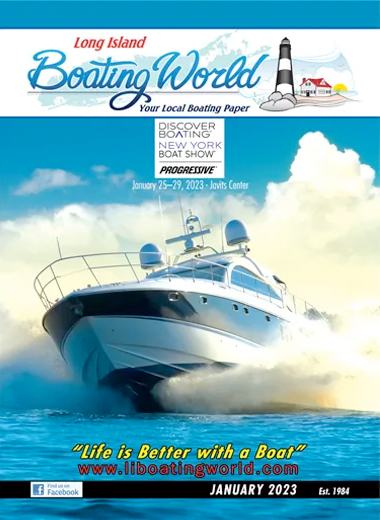
We’ve all seen pictures of people sitting in the cockpit with a drink in their hand, pictures that usually come with articles about living on a boat. Some of us read the articles and think about the lucky ones able to agree to abandon the apartment and lease or the house and the mortgage to live that life. Sometimes the enthusiasm generated so overwhelms us, it moves to go ahead without considering the downside.
The combination of the virus lockdown and subsequent moving of worksites to workers’ homes for the first time, some in tight quarters, made these workers aware that they could probably do what they were doing anywhere they could find an internet connection, maybe even on a boat.
If you are considering living on a boat, some aspects require a little more thought than others. If you want a happy, satisfying life on the water will you do this alone or is the person you had in mind equally interested in living on a boat? If you are alone there’s no one to stop you from living your life on the water. If you have a mate, will he or she be willing to split some of the less exciting chores that come with living on a boat?

Today an increasing number of US adults live without a spouse or partner. More men than women do not have partners. Generally, the unpartnered males have lower earnings than partnered males and are more likely to live with their parents – a group that could easily fit into the live aboard lifestyle.
What kind of boat will you live on? The boat you might select for fishing or cruising is not likely to be as spacious or have the storage you need and you may not want to invest in a trawler or a larger boat if you only use it to live on. You need to think “What will this boat be like down below if that’s where the galley is, on a windy, rainy, miserable day?” To try out living aboard you can do what Libby and Raul did – they rented an Airbnb boat to see if they liked it enough to fully commit to living aboard. They liked living on the boat they rented and bought a trawler so they could be comfortable with their dog and cat. Catamarans have more space and the double hull also provides privacy. The downside is that marinas sometimes charge for two slips because of the catamarans’ added beam.
A lot of what makes living aboard workable or unworkable is the attitude of the residents. If you are a positive person you can decide the lack of space, privacy, bad weather, an overwhelming amount of maintenance or the unexpected wildlife – rats, mice and mosquitos balance out with the sound of small waves lapping against the hull, the complete surround of water view and the interesting neighbors. If you’re a negative person maybe you shouldn’t even consider living on a boat.
When you think about where to locate the boat you will live on, do you picture yourself tied up at the end of a quiet canal with no amenities or at a busy marina that offers clean bathrooms, hot showers and laundry facilities? If you’re thinking you will save money at the end of the canal, you’re probably right. What you need to do is talk to the people who live on their boats at both types of locations. Services available at marinas vary. After talking to residents you’ll want to talk to marina managers. The 79th Street marina in Manhattan offers a direct connection from your boat’s head to their pumpout station which means nothing collects in your holding tank which is a big plus if you live on your boat. They also have a direct connection to your freshwater system. Being handy is a way to live more comfortably on your boat. Getting things done right away without paying someone is part of the enjoyment of life onboard. If you are not handy but are willing to pay to get things done, look for a marina that not only accepts liveaboards but welcomes them.
If you work in an office with a dress code and are expected to come to work in a dress or a suit, you may think you’d like to try living aboard but how could you keep the clothes for work unwrinkled and smelling fresh and clean and not moldy? You can’t just leave things in a drawer and expect them not to pick up the odor of dampness and the subsequent wrinkles. There are people living on boats whose cars have lines across the back seats filled with work clothes on hangars. You do what you have to do to make it work. A friend once said he could live in a closet – he had his own business and I never saw him in a suit, so he wouldn’t have a problem living aboard. Sports equipment too big to fit on a boat often winds up in a tool shed or garage on a close by relative’s property.
Some couples who try living aboard wind up divorced. There are gray areas that often are not part of solutions. The husband in one couple loved and used his tool collection and so they could stay on the boat, she suggested he put the tools in a storage center where he could go every day if he wanted, to get something, use it and take it back. It worked for them. Another couple with a husband still working was about to split over the chores that he always did on the boat. When she took a course in engine maintenance and started changing the oil their problems disappeared.
For those who are retired or can work anywhere, giving up the do it yourself add-ons to your day is just a matter of moving from your boat to a cruise ship. Some are now being built to exist as floating communities that are in port 80% of the time. Live aboards will have their own fully furnished condos that have full kitchens. A traditional ocean liner of the same size would accommodate about 2500 passengers but the cruise line says they only will have 1400 occupants and of those, only about 1000 will be on board at any one time.
The Storyline MV Narrative will have over 50 furnished condos. At 741 feet with a 98-foot beam, it will have 17 decks. The plans are to have a microbrewery, beauty salon, yoga studio, running track, dance floor, three pools, vet, doctor, nurse, hospital, pharmacist, organic garden, movie theatre, bowling alley, library and helicopter pad in case anyone needs to leave in a hurry.
The itinerary will be decided by homeowner vote and the ship will travel around the world and stop for several days in most ports. The condos cost $875,000 to $8 million. Leases for 12 and 24 years start at $400,000. When you want to leave the ship for a while you can rent your condo and the Storyline people will manage the rental.
From one who was strongly tempted – I took some good advice about the boat and myself. The boat was neglected for too long. It was too needy. Even if it had been in good shape, there was not a good space for a big dog crate. There was not a good place to set up to work. I had a full time job and commuted by train from Babylon to NYC. I had a part time job that started in an office and finished at home so I needed space to work if I lived on the boat. Probably the biggest problem as two friends pointed out, was my lack of handyman skills.
Before making any decisions about living aboard you should read Mark Nicholas’ book,
The Essentials of Living Aboard a Boat.” It answers every question you might have and covers all the bases
